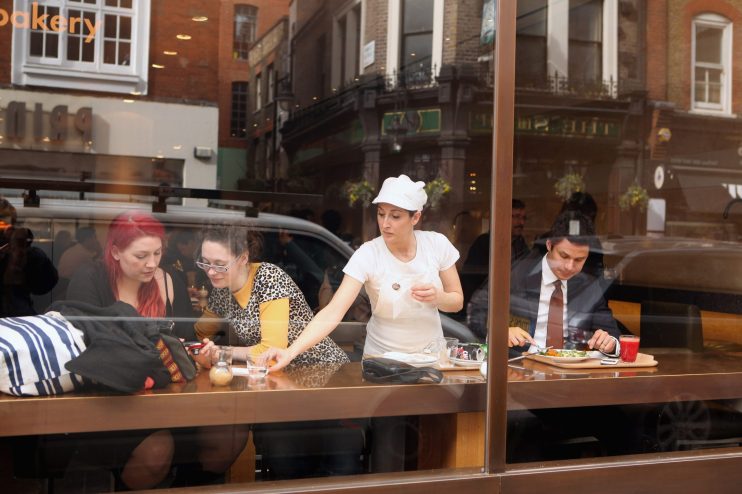UK services sector rebound beats expectations after election

The UK services sector surged in January, according to new survey data, beating initial estimates to deliver its strongest growth in over a year after the December General Election brought some clarity to the economy.
The IHS Markit/Cips index of services activity hit 53.9 in January, its best reading since September 2018. It was well above an earlier estimate of 52.9 and far higher than the 50 registered in December.
A score of above 50 indicates expansion, and January’s reading was the first time the sector had grown since August 2019.
The UK services sector – which makes up roughly 80 per cent of the economy – struggled in 2019 amid Brexit uncertainty and a slowing global economy.
Yet Boris Johnson’s thumping election victory in the middle of December ensured Britain left the European Union last month. Many businesses have been grateful for at least some certainty after three years of political impasse.
UK services sector firms said higher levels of consumer spending and business investment had both contributed to the overall rise in new work in January, data firm IHS Markit said.
The pace of job creation reached its strongest since July 2019 last month, meaning services firms have taken on employees for three months in a row.
Tim Moore, economics associate director at IHS Markit, said the survey gives “a clear signal that the UK economy has picked up since the general election, as a diminishing headwind from political uncertainty translated into rising business and consumer spending”.
Moore predicted that UK GDP will rise 0.2 per cent in the first quarter of the year after it stagnated in the final three months of 2019.
Duncan Brock, group director at Cips, the Chartered Institute of Procurement & Supply, said: “New work flowed in at a surprisingly sharp rate as businesses started to invest and previously uncertain consumers parted with their cash.”
UK economy has ‘turned a corner’
After the manufacturing and construction sectors also rebounded in January, IHS Markit’s overall gauge of private sector activity picked up from 49.3 to 53.3 in January.
Ruth Gregory, senior UK economist at Capital Economics, said the rise in the all-sector measure “provides the clearest sign yet that the economy has turned a corner at the start of the year”.
Policymakers at the Bank of England will be reassured by the PMI data about their decision to hold interest rates at 0.75 per cent last week.
Explaining the decision, governor Mark Carney said there had been signs of a short-term rebound in the economy, lessening the case for a rate cut.
Yet he said: “These are still early days, and it is less of a case of so far so good, than so far, good enough.”
The government has until the end of this year to negotiate a “deep free-trade agreement” with the EU, and many services firms are worried about another year of wrangling over Brexit.
On Monday, Johnson said he wanted a “Canada-style” deal with the bloc, but many services firms were alarmed as such a deal would do little for their industries.